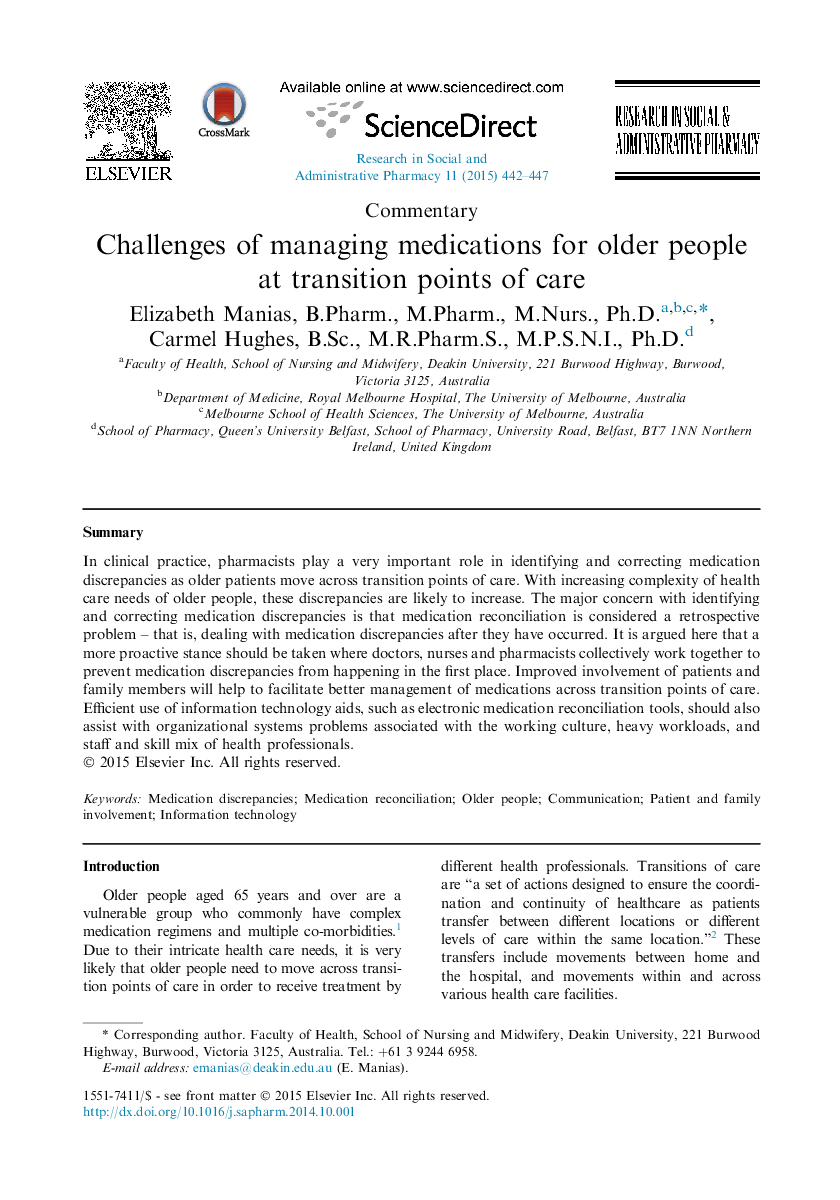| Article ID | Journal | Published Year | Pages | File Type |
|---|---|---|---|---|
| 2508331 | Research in Social and Administrative Pharmacy | 2015 | 6 Pages |
SummaryIn clinical practice, pharmacists play a very important role in identifying and correcting medication discrepancies as older patients move across transition points of care. With increasing complexity of health care needs of older people, these discrepancies are likely to increase. The major concern with identifying and correcting medication discrepancies is that medication reconciliation is considered a retrospective problem – that is, dealing with medication discrepancies after they have occurred. It is argued here that a more proactive stance should be taken where doctors, nurses and pharmacists collectively work together to prevent medication discrepancies from happening in the first place. Improved involvement of patients and family members will help to facilitate better management of medications across transition points of care. Efficient use of information technology aids, such as electronic medication reconciliation tools, should also assist with organizational systems problems associated with the working culture, heavy workloads, and staff and skill mix of health professionals.
